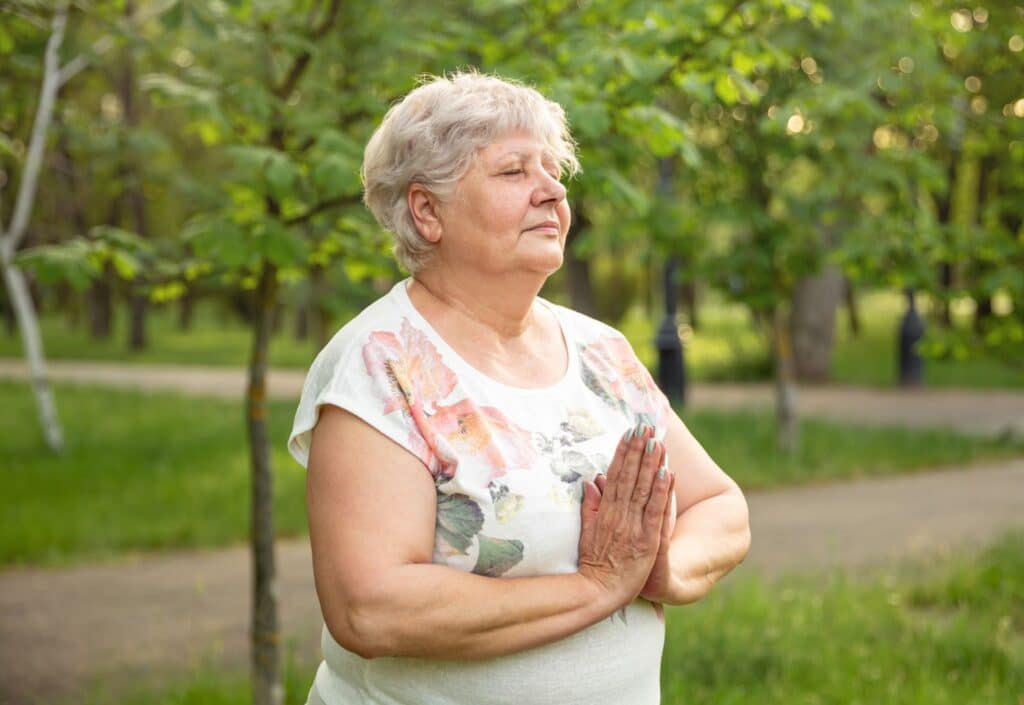Hallucinations, though often associated with conditions like schizophrenia, can also affect seniors due to various factors. These sensory perceptions, which are not grounded in reality, can be disorienting and distressing for both seniors experiencing them and their caregivers.
As seniors age, they may become more susceptible to hallucinations due to changes in sensory perception, cognitive function, and overall health.
Understanding the causes and manifestations of hallucinations in seniors is crucial for developing effective management strategies and providing appropriate support.
Some strategies include:
- Consult healthcare professionals & review medications
- Create a safe environment
- Establish a routine
- Promote relaxation
- Encourage social interaction
- Explore therapeutic interventions
Understanding Hallucinations in Seniors
Hallucinations in seniors can manifest in different forms, including visual, auditory, olfactory, and tactile experiences.
Common causes include:
- Sensory impairment
- Medication side effects
- Neurological conditions like dementia
- Psychiatric disorders
It’s important to identify the underlying cause to develop an effective management plan.
Consult Healthcare Professionals & Review Medications
When dealing with hallucinations in seniors, it’s integral to consult healthcare professionals such as doctors, geriatric specialists, or psychiatrists.
They can conduct a thorough assessment to determine the underlying cause of hallucinations and recommend appropriate treatment or management strategies.
Additionally, a medication review with a healthcare professional can identify any medications that may be contributing to hallucinations and adjust dosage or switch medications if necessary.
This comprehensive approach ensures that seniors receive the necessary medical attention and support to manage their hallucinations effectively.
Create a Safe Environment
Ensuring that the environment is safe and free from potential hazards can help prevent accidents or injuries during hallucination episodes. Remove any objects that could be tripping hazards and ensure that your loved one’s living space is well-lit and comfortable.
Maintain a familiar and consistent environment. Changes in surroundings or routines can exacerbate hallucinations and increase feelings of anxiety or distress.
Keep furniture and belongings in their usual places and avoid rearranging the living space unnecessarily.
Establish a Routine
Maintaining a regular daily routine can provide a sense of stability and predictability for seniors experiencing hallucinations. Establishing set times for meals, medication, and activities can help reduce anxiety and confusion.
Promote Relaxation

Techniques such as deep breathing exercises, meditation, or gentle stretching can promote relaxation and help seniors manage stress and anxiety associated with hallucinations.
Deep Breathing Exercises
Encourage your loved one to practice deep breathing exercises, which can help induce a sense of calmness and relaxation.
Simple techniques such as diaphragmatic breathing or belly breathing can be effective in reducing stress and anxiety levels.
Mindfulness and Meditation
Introduce seniors to mindfulness and meditation practices, which focus on being present in the moment and cultivating a sense of inner peace.
Guided meditation sessions or mindfulness apps can provide structured guidance for seniors to engage in these practices.
Progressive Muscle Relaxation
Teach seniors progressive muscle relaxation techniques, which involve tensing and then relaxing different muscle groups in the body. This can help release physical tension and promote relaxation.
Stress Reduction Activities
Encourage seniors to engage in stress-reducing activities that they enjoy, such as listening to calming music, practicing gentle yoga or tai chi, or spending time in nature.
These activities can help distract the mind from hallucinations. By incorporating these relaxation techniques into daily routines, caregivers and family members can help seniors manage hallucinations more effectively while promoting their quality of life.
Encourage Social Interaction
Loneliness and isolation can exacerbate hallucinations. Encouraging seniors to spend time with family members, friends, or participate in social activities can provide emotional support and companionship.
Explore Therapeutic Interventions
In some cases, therapeutic interventions such as cognitive-behavioral therapy (CBT) or reality orientation therapy may be beneficial in helping seniors manage hallucinations and distinguish between what is real and what is not.
Seek Support
When it comes to supporting seniors dealing with hallucinations, collaboration among caregivers, physicians, and family members is essential. At The Legacy at Falcon Point, we recognize that hallucinations can be challenging for both seniors and their loved ones.
By working together as a team, we can develop comprehensive care plans that address the individual needs of each resident.
- Caregivers play a crucial role in providing daily support and monitoring residents for any changes in behavior or symptoms of hallucinations. They can offer reassurance, comfort, and companionship to seniors experiencing these distressing symptoms.
- Physicians also play a vital role in managing hallucinations in seniors. Through regular consultations and medication reviews, they can prescribe appropriate treatments and adjust medications as needed to alleviate symptoms and minimize side effects.
- Family members are valuable partners in the care process, offering insights into their loved one’s history, preferences, and any changes they’ve noticed. Their involvement helps ensure that the care plan is holistic and aligns with their needs.
By collaborating closely with caregivers, physicians, and family members, we can create a supportive environment for seniors with hallucinations.
Together, we develop personalized strategies to manage symptoms, create a safe and comforting living environment, and promote relaxation and peace of mind for residents facing this challenge.
If you have a loved one experiencing hallucinations or other challenges associated with aging, we’re here to help. Contact us to learn more about our personalized care services and how we can support your family member’s unique needs.
